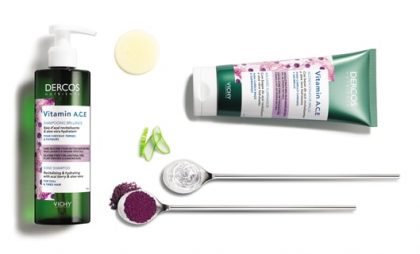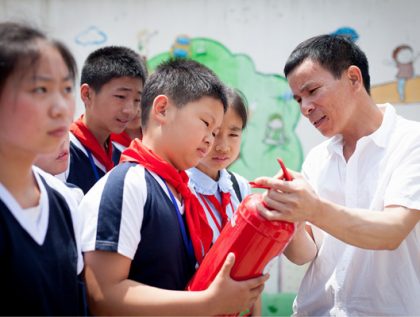Operations
- Key Figures
- Highlights
Highlights
Industrial innovation
In our plants, the technicians and operators who control the packaging lines know their systems inside out. Vincent Grégoire for example, an operator at the Libramont plant in Belgium, actively participated in the creation of a mobile app to manage his packaging line.

Respect, reduce and replace: the 3 golden rules of responsible packaging at L’Oréal
Since 2007, the Group has begun a product eco-design initiative with its suppliers to create environment-friendly packaging. The initiative is based on “3Rs”: Respect for the consumer and the environment, Reduction of the volume and weight of packaging, and Replacement of high-impact materials.
The new method of evaluating the environmental and social profile of products, SPOT (Sustainable Product Optimization Tool), created by L’Oréal, provides a clear vision of the improvements made for each packaging item, and enables the launch of progress initiatives every year for each of the Group’s brands. An ambitious target has been set: by 2020, 100% of our new products will have an improved environmental or social impact compared with the products they replace. Going one step further, L’Oréal made a commitment at Davos in 2018 that 100% of its plastic packaging will be refillable, reusable or compostable by 2025.
Distribution in India
To meet the specific demands of the Indian market, L’Oréal has set up its local production plants and research centres. Aalok Oke, Director of Operations in India, explains how this local presence combined with L’Oréal’s centenary expertise has helped L’Oréal to rise to the challenges of distribution in India.

The safety of L’Oréal’s teams is a top priority
L’Oréal is rolling out its worldwide Health & Safety standards at all sites, setting up dedicated training programmes to protect its teams and making regular investments to strengthen safety in the workplace. But L’Oréal has decided to go the extra mile, aiming at extending knowledge of safety risks to include risks in everyday life. With this in mind, the “Safe @ Work, Safe @ Home” accident prevention scheme has been rolled out for our employees in more than 70 countries. To make sure that prevention covers as many people as possible, the programme has supported numerous training initiatives for employees’ children, and for schools located close to our sites. And an ambitious global partnership has been signed in the United Kingdom with RoSPA – The Royal Society for the Prevention of Accidents – a British charity with recognised expertise in accident prevention.

Agility is the key to 11/11
With the continuing expansion of e-commerce, agility has become the cornerstone of industrial and logistical performance. Whatever the channel, the level of agility required has increased. But it is particularly during flagship events, such as Singles’ Day on 11 November in China (11/11), that maximum agility is essential, as the number of online orders keeps breaking records.
Launched in 2009 by Alibaba in China, Singles’ Day has become the world’s largest online sales event. L’Oréal contributes to Singles’ Day’s success by selling products from 18 of its brands. With millions of parcels to be delivered in just five days, agility is crucial for consumer satisfaction.
Singles’ Day is a huge challenge in terms of sales forecasts, inventory management, delivery and also with respect to our environmental responsibility. This year L’Oréal launched “green parcels”, in line with its “Sharing Beauty With All” commitments, using renewable and recyclable paper filling materials for its packaging.
A locally integrated factory that takes its responsibilities seriously: Burgos in Spain
As well as boasting renewable energy production facilities, the L’Oréal plant at Burgos in Spain is the Group’s first “dry factory”. This trailblazing concept means that 100% of the water used for industrial processes is treated and recycled on-site via a closed loop so that it can be reused. The process required substantial investments in a wastewater recycling facility.
In 2018, the same approach was adopted at Settimo in Italy and Vorsino in Russia, which have also become “dry factories,” minimising their water resource requirement.












